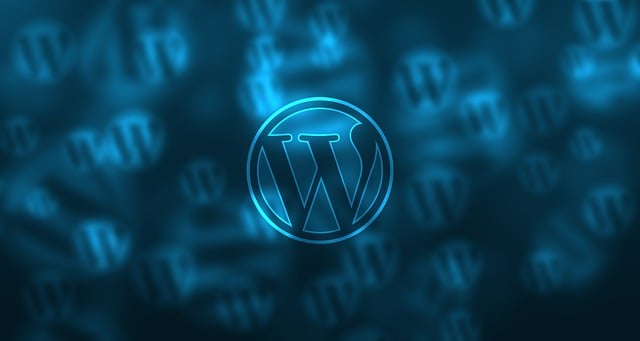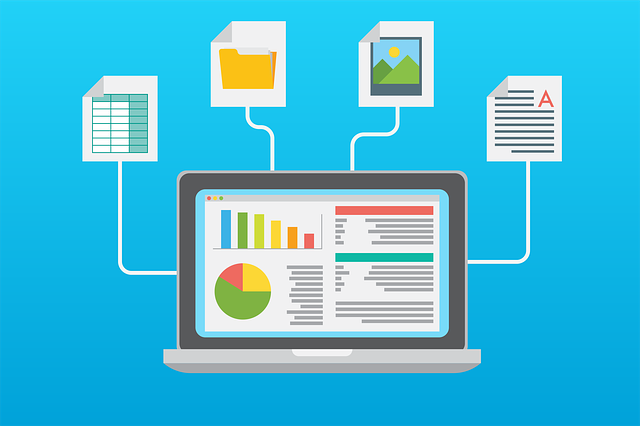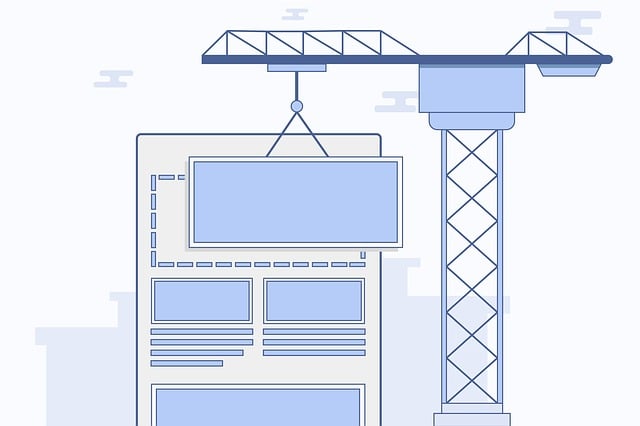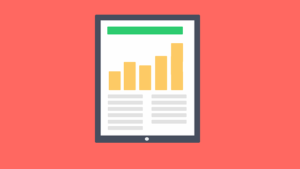Small businesses need a powerful online presence, achieved through effective web design that includes intuitive navigation, mobile optimization, e-commerce integration, and SEO strategies. A successful site boosts engagement, conversions, and brand identity with user-friendly features like clean layouts, compelling visuals, and clear calls-to-action. Outsourcing small business web design to professional agencies offers access to expert skills, saving time and resources while ensuring modern designs and functionality across devices. Choosing the right agency involves clearly defining goals, assessing portfolios, and verifying knowledge of trends and technologies. Well-designed websites with SEO best practices attract organic traffic and enhance online visibility, driving small business success in the digital landscape. Professional web design services provide cost-effective solutions with flexible pricing, comprehensive packages, and measurable results tracked through key metrics like website traffic and conversions.
In today’s digital era, a robust online presence is non-negotiable for small businesses aiming to thrive. A well-designed website acts as a virtual storefront, connecting with customers and showcasing offerings. This article delves into the essence of small business web design services, guiding you through understanding unique needs, essential components, and strategic choices. Learn how outsourcing design services benefits your business, from cost-effective solutions to optimizing for search engines (SEO). Discover key features and performance metrics to ensure your website drives success.
Understanding Small Business Web Design Needs

Small businesses today need a robust online presence, and web design plays a pivotal role in achieving this. With a well-designed website, small enterprises can showcase their products or services effectively, engage with potential customers, and build brand identity. Understanding these unique needs is essential for web designers to create solutions that are both visually appealing and functional.
Key considerations include simplifying navigation for users to find information quickly, ensuring the site is optimized for mobile devices, integrating e-commerce functionality for online sales, and implementing search engine optimization (SEO) strategies to enhance visibility. A successful small business website should be easy to manage, allowing owners to update content regularly and adapt to changing market trends.
Key Components of an Effective Small Business Website

A successful small business website is more than just a digital storefront; it’s a powerful tool that drives engagement, increases conversions, and strengthens brand identity. When designing for small businesses, several key components come into play to ensure effectiveness and user-friendliness. Firstly, a clean, intuitive layout with clear navigation ensures visitors can effortlessly explore products or services. Responsive design is also essential, given the majority of users now access websites via mobile devices.
Furthermore, compelling visual elements like high-quality images and videos enhance the user experience and help convey a brand’s personality. Engaging content that speaks directly to the target audience’s pain points and needs is crucial for capturing interest and building trust. Effective small business web design also incorporates easy-to-use contact forms and clear calls-to-action, encouraging visitors to take the next step whether it’s making a purchase or reaching out for more information.
Benefits of Outsourcing Web Design Services

Outsourcing small business web design services offers numerous advantages for entrepreneurs and startups. One of the key benefits is access to professional expertise. Specialized web design agencies employ talented designers and developers who stay up-to-date with the latest industry trends, ensuring your website not only looks modern but also functions seamlessly across various devices. This saves small businesses time and resources, as they can avoid the learning curve associated with coding and design software.
Additionally, outsourcing allows for cost-effectiveness. While hiring an in-house web designer may be expensive, outsourcing provides a more flexible and budget-friendly option. Small businesses can choose from a range of pricing models, including fixed rates or hourly charges, allowing them to allocate resources efficiently. Moreover, professional web design agencies often have established processes and systems in place, ensuring projects are delivered on time without compromising quality, which is vital for maintaining a strong online presence in the competitive digital landscape.
How to Choose the Right Web Design Agency for Your Business

Choosing the right web design agency is a crucial step for any small business aiming to establish an online presence. Start by clearly defining your goals and target audience, as this will guide your search for a partner who aligns with your vision. Look for agencies specializing in small business web design, ensuring they understand the unique needs of startups or established enterprises looking to enhance their digital footprint.
Research their portfolio, case studies, and client testimonials to gauge their expertise and creativity. Check if they stay up-to-date with the latest industry trends and technologies, especially in terms of responsive design, as this ensures your website adapts seamlessly to various devices. Additionally, consider communication and project management styles; clear, transparent, and consistent communication is vital for a successful partnership.
Essential Features Every Small Business Website Should Have

A well-designed website is no longer a luxury for small businesses; it’s a necessity. In today’s digital era, having an online presence is crucial for any business looking to thrive and compete. When crafting a small business web design, several key features should be considered to ensure maximum impact and user engagement.
First and foremost, simplicity and ease of navigation are paramount. Small business websites should be designed with a clear structure, intuitive menus, and fast loading times. Incorporating high-quality visuals, such as compelling images and videos, can also enhance the user experience. Additionally, search engine optimization (SEO) plays a vital role in making your site visible to potential customers. Relevant keywords, meta descriptions, and structured data are essential features that improve search rankings and attract organic traffic. Lastly, ensuring mobile responsiveness is critical, as most users now access websites via smartphones and tablets.
SEO and Small Business Web Design: A Winning Combination

Search Engine Optimization (SEO) and small business web design go hand in hand, creating a powerful duo that can significantly boost online visibility and drive traffic to your company’s website. When crafting a website for a small business, integrating SEO best practices from the outset is essential. A well-designed website doesn’t just look appealing; it should be optimized to rank higher on search engine results pages (SERPs).
By utilizing relevant keywords, creating quality content, and ensuring fast loading speeds, your site becomes more attractive to both users and search engines. This combination of effective small business web design and SEO strategies can help your target audience easily discover your services or products online, leading to increased brand awareness and potential customers.
Cost-Effective Solutions for Small Businesses

Small businesses often have limited budgets, which makes it crucial to find cost-effective solutions for their web design needs. Investing in a professional small business web design service can be a game-changer, offering more than just an attractive online presence. These services provide tailored packages that include website development, hosting, and ongoing maintenance at prices suitable for startups and established businesses alike.
By outsourcing web design, small businesses can save on costs associated with hiring in-house developers or managing complex technical aspects. Many web design agencies offer flexible pricing models, including monthly subscriptions or one-time fees, allowing businesses to choose options that align with their financial goals. This accessibility ensures that even budget-conscious entrepreneurs can have a robust and functional website, enhancing their online visibility and reaching a wider audience.
Measuring Success: Evaluating Your Website's Performance

Measuring success for a small business web design is an essential step in understanding the impact and return on investment (ROI) of your online presence. One of the primary metrics to evaluate is website traffic, which can be analyzed through tools like Google Analytics. By tracking key performance indicators (KPIs), such as unique visitors, bounce rate, and time spent on site, you gain insights into user engagement. High traffic and low bounce rates indicate that your website is capturing the interest of visitors, while useful content and clear calls to action are encouraging them to explore further.
Additionally, converting website visitors into customers or leads is a critical success factor for small businesses. Tracking conversion rates helps identify areas where potential clients might be dropping off. For instance, an e-commerce site may see high traffic but low sales if the checkout process is complicated or product descriptions aren’t optimized. By regularly assessing and refining your web design based on these metrics, you can enhance user experience, increase conversions, and ultimately drive business growth through effective small business web design services.
